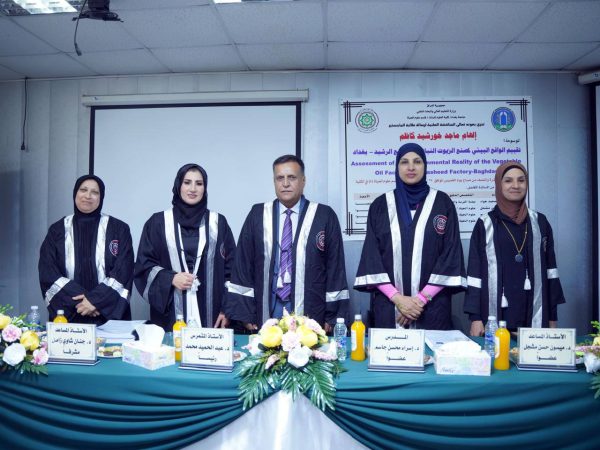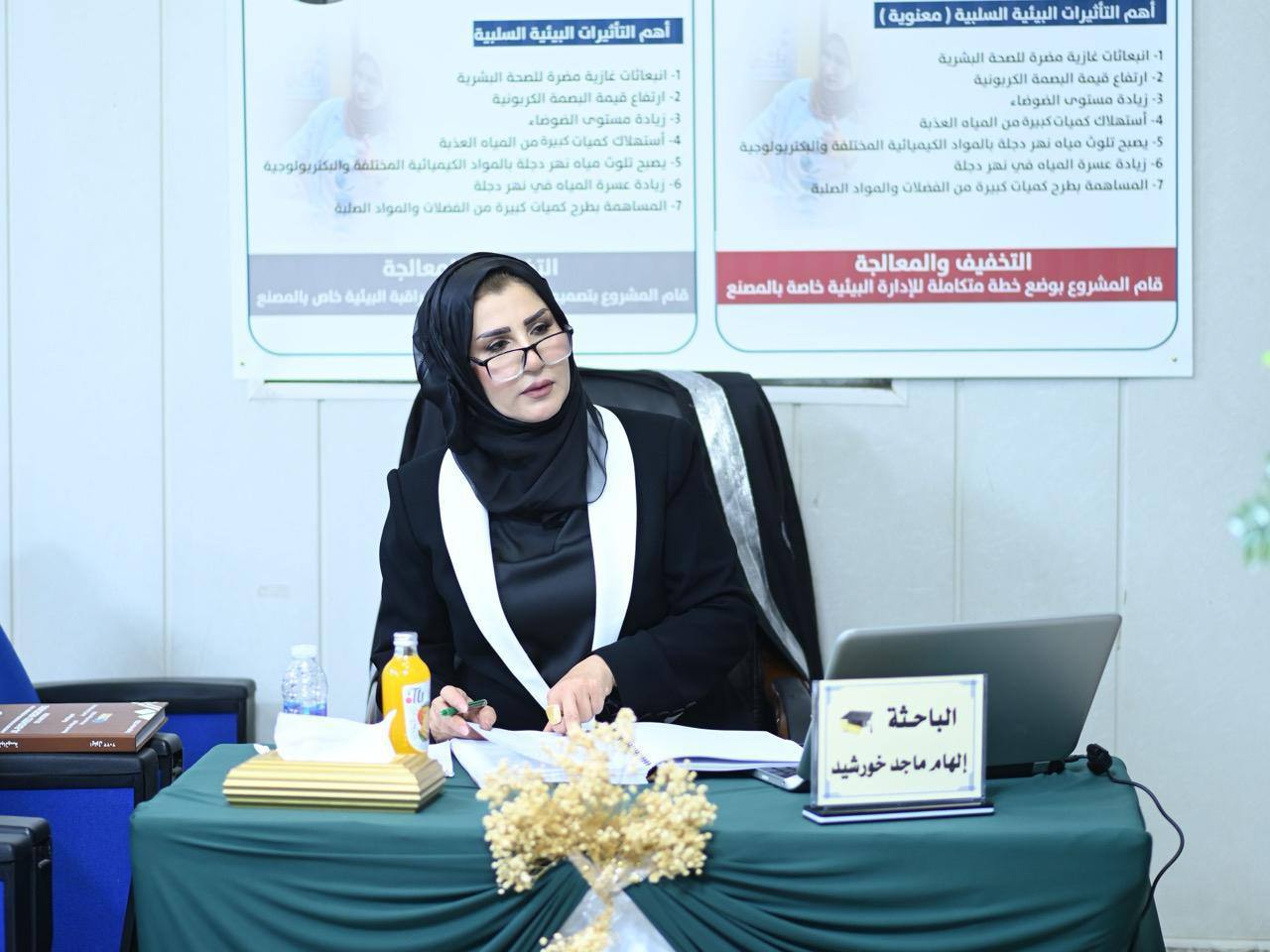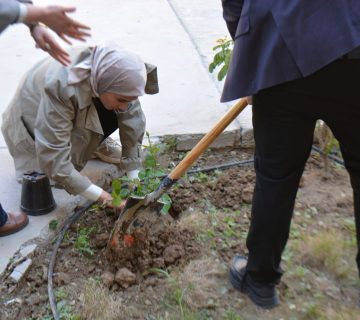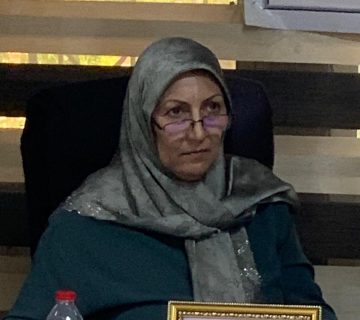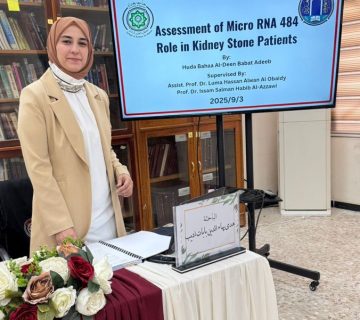Thesis in College of Science for Women discusses (Environmental Assessment of AL-Rasheed Vegetable Oil Factory -Baghdad).
College of Science for Women / University of Baghdad examined the thesis entitled (Environmental Assessment of AL-Rasheed Vegetable Oil Factory -Baghdad) of the student Elham Majed Khorsheed Al-Bayati
The thesis aims to
- To prepare an assessment document according to section 21 of the Environmental Management Act No. 3 of 2011.
- To analyze the impacts of the factory on core environmental components including air, water, soil.
- To construct an Environmental Management Plan (EMP) for Al-Rasheed Factory.
- To design an Environmental Monitoring Program for Al-Rasheed factory.
The Thesis also includes
Analyzed the status of environmental pollution impact due to the operation of Al-Rasheed Vegetable Oil Factory. It assessed the depth and magnitude of the potential impacts of the basic environmental parameters on the surrounding environment due to the operation of the Al-Rasheed Vegetable Oil Factory. These analysis data have been utilized for predicting the impact in the location due to the operation of Al-Rasheed Vegetable Oil Factory. The study confirmed that Al-Rasheed Vegetable Oil Factory used to be a major source of air pollution during 1950-2003 (working at full capacity) in City of Baghdad. The calculated carbon footprint for the Factory for the year 2003 is equal to 8476837.376 kg CO2-eq. The present study concluded that the Carbon footprint benchmark value for the Al-Rasheed Vegetable Oil Factory equals to 1269 Kg CO2 equivalent. The total water demand used during that period was around (30,000m3) per hour. This is a huge amount, especially with the fact that Iraq is currently facing a water shortage, thus recycling needs to be considered. The environmental monitoring program has been designed to ensure that the envisaged purpose of the environment management plan is achieved and results in the desired benefit to the target population near Al- Rasheed Vegetable Oil Factory. To ensure the effective implementation of the (EMP), an effective monitoring program must be designed and carried out.
The most important recommendations which the study has come up with and the average obtained.
- the factory can select two options. Either it can continue detergent and soap production only or can start vegetable oil and fat production along with the existing unit.
- In any of these conditions, at the next level, a detailed Environmental Impact Assessment shall be prepared to design the mitigation activities.
- Implement an Environment Management Plan before opening
- Implement mitigation measures as suggested in the study
Average obtained : Excellence
